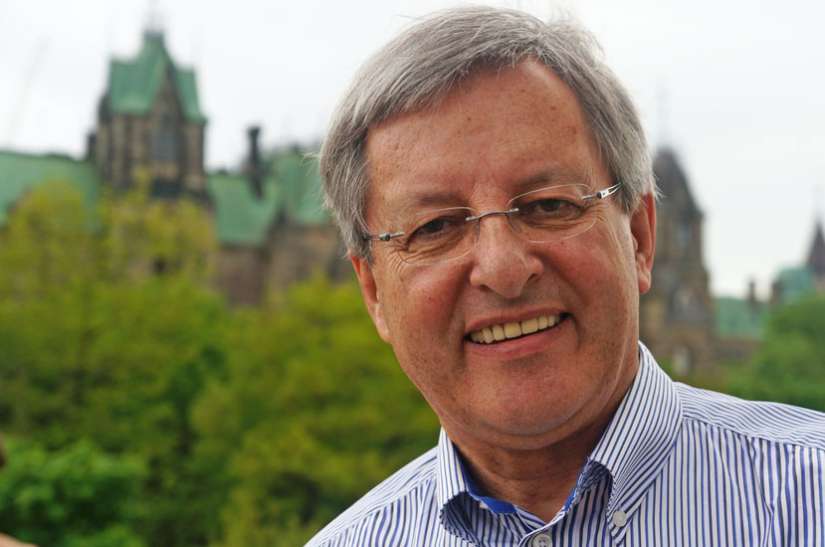The decision could affect cities and towns across Canada as well as the House of Commons, though the Court did not rule on the Commons prayer, though acknowledging it takes place.
Alain Simoneau had complained to the Quebec Human Rights Tribunal of discrimination because the Saguenay mayor and council pray before their official meetings. The tribunal ruled he had been discriminated against and ordered the mayor and council to pay compensatory and punitive damages of $30,000.
Mayor Jean Tremblay, a devout Catholic, began soliciting funds to fight for the right to pray at council meetings and appealed the ruling to the Quebec Court of Appeal, which overturned it.
The Supreme Court however, has reinstated the tribunal’s judgment and ordered the payment of the original fine plus interest.
“The prayer recited by the municipal council in breach of the state’s duty of neutrality resulted in a distinction, exclusion and preference based on religion — that is, based on Mr. Simoneau’s atheism — which, in combination with the circumstances in which the prayer was recited, turned the meetings into a preferential space for people with theistic beliefs,” wrote Justice Clement Gascon for eight of the justices. Justice Rosalie Abella wrote a partial concurrence with the decision.
The mayor and council participated in a way favourable to their beliefs, the decision said.
“Although non-believers could also participate, the price for doing so was isolation, exclusion and stigmatization. This impaired Mr. Simoneau’s right to exercise his freedom of conscience and religion.”
The tribunal found Simoneau “experienced a strong feeling of isolation and exclusion” that was “more than trivial or insubstantial.”
The court also used Tremblay’s words against him, quoting him as saying, “I’m in this fight because I worship Christ. When I get to the hereafter, I’m going to be a little proud. I’ll be able to say to Him: 'I fought for you; I even went to trial for you.' ”
The court noted that at the tribunal he admitted saying those words and added: “It’s true we place much emphasis on that because we have faith. And because we want to show it.”
“These comments confirm that the recitation of the prayer at the council’s meetings was above all else a use by the council of public powers to manifest and profess one religion to the exclusion of all others,” Gascon wrote.
The Court noted the respondents — the City of Saguenay and Tremblay — had referred to the reference to the supremacy of God in the Canadian Charter, but this reference “cannot lead to an interpretation of freedom of conscience and religion that authorizes the state to consciously profess a theistic faith.”
The Catholic Civil Rights League, which intervened with the Association of Catholic Parents of Quebec and the Faith and Freedom Alliance, was disappointed with the decision.
“This decision is particularly disturbing in terms of its impact in assessing the boundaries for state neutrality,” said league executive director Christian Elia. “All would agree in the necessity of maintaining state neutrality, but with this decision the belief system of secularism and atheism is exalted over other belief systems.
“It’s important to remember the automatic default decision is not secularism,. Secularism is one system of belief. This is not the authentic, robust pluralism we should have in Canada.”
The league had argued for religious and non-religious believers to be able to share the public space through non-coercive prayers or multiple prayer options such as a moment of silence.
Constitutional lawyer and religious freedom expert Iain Benson said perhaps all government meetings should being with a solemn recitation of the Charter’s preamble, “Whereas Canada is founded on the supremacy of God and the rule of law,” followed by, “We will now observe a minute of silence to reflect on the meaning of those two propositions.”
The idea that beliefs have no bearing on truth is “a great vacuum at the core of contemporary jurisprudence,” said Benson. “This idea that we can avoid articulating what is good, true and beautiful in the public square leads to a diminished horizon of meaning in our common life.
“Simply put, there’s more to our life together than autonomy,” Benson said.
Benson also expressed concerns about legal decisions “that give too much weight to people whose feelings are hurt and can tend to diminish the importance of group initiatives.”
“What if the prayer in a community had been endorsed by all major religious traditions? Such a thing is easily possible. Why should the objection of an atheist or agnostic overrule all the other believers?”
Evangelical Fellowship of Canada (EFC) president Bruce Clemenger said the Saguenay decision “raises more questions than it answers.
“It explains what the court feels is not acceptable, but it doesn’t really clarify what is acceptable religious observances by state officials or at events that are sponsored by the government.”
Clemenger raised Remembrance Day ceremonies as an example. He also noted the decision discussed prayer at an Ontario city council and in the House of Commons but did not rule on whether they were appropriate. He suggested the context of the Saguenay prayers and the mayor’s remarks may have played a role. Ottawa City Council has already abandoned its prayer, he said.
The decision speaks in one section of how state officials should not profess or adopt one belief in preference to others, Clemenger said, but where does that put state officials who may wear religious headgear such as turbans, yarmulkes or headscarves while performing their duties?
Clemenger said the decision contained strong language affirming the importance of religious individuals being able to express that belief in the public square.
“For that reason they think the state must be neutral,” he said. In this decision it says Saguenay “crossed the line but it has not defined where that line is.”


